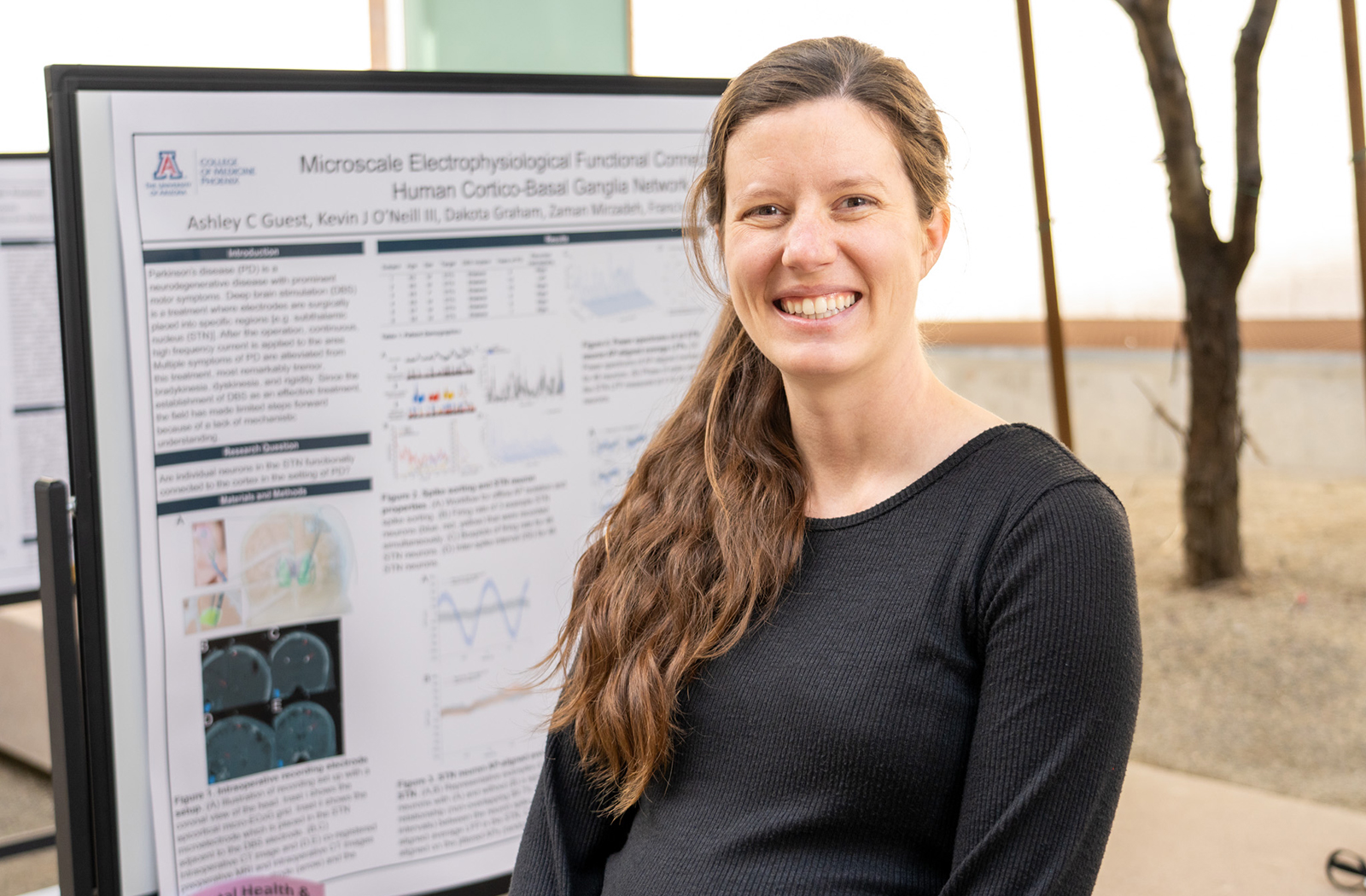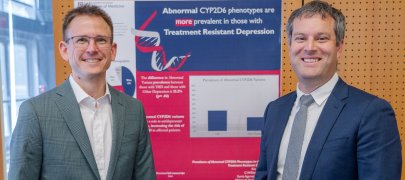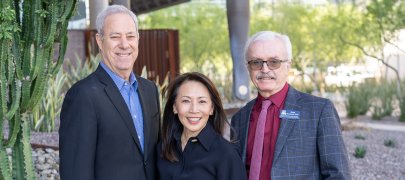
Scholarly Project Profile: Ashley Guest

The Scholarly Project — a four-year, longitudinal research experience — is a key component of the college’s curriculum. Requiring medical students to complete a substantiative research project promotes greater medical information literacy, encourages life-long learning, and inspires students to practice evidence-based medicine and ethics. It also serves as a key differentiator during the residency interview process.
Meet Ashley Guest
Ashley Guest grew up in Gilbert, Arizona, and went to Brigham Young University for her undergraduate and master’s degrees. Afterward, she spent one year working in a research lab at the National Institutes of Health.
Guest made her return to Arizona in 2017 to start her MD/PhD dual degree at the University of Arizona College of Medicine – Phoenix. She has now matched into child neurology at Stanford Health Care.
She said she has been blessed by a wealth of mentors and has been inspired by Bradley Greger, PhD; Michael Kruer, MD; Zaman Mirzadeh, MD, PhD; Francisco Ponce, MD; and the overall Department of Pediatric Neurology at Phoenix Children’s.
About Her Research
What did you think about completing a four-year research project as part of your medical education?
Because I am in the dual-degree MD/PhD program, I worked in this field for about six years. I am very interested in utilizing research to make medicine better, and I believe participating in research during my training has equipped me with a great skillset to help advance medicine over my career. In my future, I am most interested in participating in clinical research.
What did you learn from the research process?
I learned many things! To be brief, I learned to become a better critical thinker, how to digest research literature, the grant application process and how to construct a grant proposal, how to conduct human subjects research, and how to work with collaborators. I also increased my skills in presenting and publishing research findings.
How did you choose this specific research focus and what was the aim of the project?
My project is on the neural communication in the brain in the network that is modulated by deep brain stimulation in Parkinson's disease. Deep brain stimulation is a treatment where an implanted device applies electrical stimulation to particular brain targets to alter how the brain is processing information and alleviate symptoms of the disease.
In Parkinson's disease, the effects on alleviating tremor and bradykinesia (slow movement) are quite remarkable. Despite the success of implementing deep brain stimulation, we do not completely understand the mechanism behind the therapy, and we are starting to reach limitations in treatment because of this incomplete understanding.
My project aims to address this gap in knowledge and examines how neurons and neuronal networks are affected by deep brain stimulation.
And what was the outcome of the research?
My project found a functional relationship between individual neurons in the subthalamic nucleus and signals on the cortex that are on a smaller scale than has been examined before. The work was published in Clinical Neurophysiology.
Did your research influence your choice of specialty for residency?
Yes, my research is in neuroscience, and I have been passionate about studying the brain for some time. I am going into child neurology, and I am really excited for future opportunities within child neurology for patients to be treated with deep brain stimulation.
How do you think this project helped to prepare you for your career in medicine?
This project helped me gain experience and grow my skills for my future career as a physician. I did not know anything about deep brain stimulation before this project, and I am now contemplating making it a large focus of my long-term career. I also think that it is important to know how to evaluate evidence and to then practice evidence-based medicine. This project helped me gain skills in those areas.
If there is one piece of advice you could give to incoming medical students about this project, what would it be?
Find a project with important clinical relevance and seek to build long-term research skills beyond the specifics of your project.
About the College
Founded in 2007, the University of Arizona College of Medicine – Phoenix inspires and trains exemplary physicians, scientists and leaders to optimize health and health care in Arizona and beyond. By cultivating collaborative research locally and globally, the college accelerates discovery in a number of critical areas — including cancer, stroke, traumatic brain injury and cardiovascular disease. Championed as a student-centric campus, the college has graduated more than 800 physicians, all of whom received exceptional training from nine clinical partners and more than 2,700 diverse faculty members. As the anchor to the Phoenix Bioscience Core, which is projected to have an economic impact of $3.1 billion by 2025, the college prides itself on engaging with the community, fostering education, inclusion, access and advocacy.


